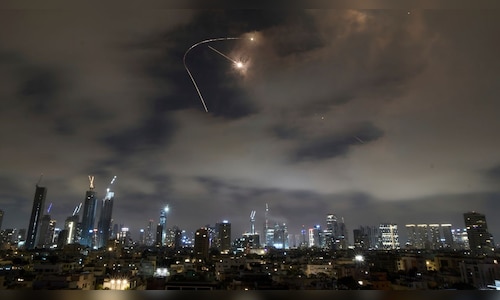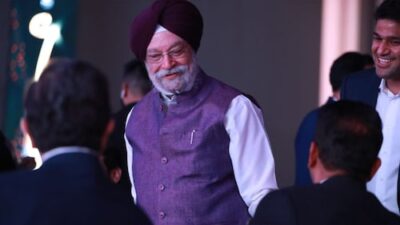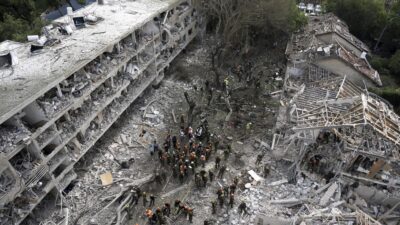Among the esteemed panelists were Nilesh Shah (MD, Kotak Mahindra AMC), Waiel Awwad (Senior Journalist), Sunil Vaswani (ED, Container Shipping), Amb. KC Singh (Former Indian Ambassador to Iran), Laura James (Oxford Analytica), Asher Fredman (ED, Misgav Institute for National Security), Dr. Deina Abdelkader (University of Massachusetts Lowell), Prof. Sean Foley (Middle Tennessee State University), and Harsh Pant (Observer Research Foundation).
US Involvement Driven by Israeli War Aims?
Dr. Harsh Pant provided a candid analysis of the motivations behind the significant Operation Midnight Hammer. “It relates more to Israeli ambitions and war objectives,” he asserted. “Once it became evident that American assistance was essential, intervention became inevitable.”
Pant argued that Israel’s urgent quest to dismantle Iran’s nuclear infrastructure was closely aligned with the US’s willingness to act, despite President Trump’s earlier reluctance towards foreign wars. “Leaving any residual nuclear capacity is no longer a viable option for either Israel or the US, especially for Benjamin Netanyahu,” he mentioned.
Oil at the Epicenter of Global Concerns
From the Strait of Hormuz to Wall Street, energy security emerged as the central theme. Nilesh Shah warned of immediate market volatility: “Markets’ initial reactions will be negative, but ultimately they will assess oil availability and pricing to determine future trends.”
Prof. Sean Foley highlighted the global ramifications should Iran decide to close the Strait of Hormuz—a possibility Tehran has alluded to. “This would jeopardize Iranian oil exports, affect other oil suppliers in the Middle East, and elevate oil prices worldwide—especially impacting countries like China and India,” he remarked.
Also Read: Before-and-after satellite images show damage to Iran’s nuclear sites in US-Israel strikes
Foley noted that Iran’s strategy appears to be one of utilizing threats to gain geopolitical leverage, rather than pursuing immediate escalation: “In many respects, what they’re doing is initiating a threat—seeking leverage over the Americans.”
Israel: Existential Threat, Not Regime Change
Asher Fredman firmly dismissed the notion that Israel aims for regime change. “Israel’s objective is not regime change. It’s certainly not about boots on the ground,” he stated.
Instead, Fredman pointed out what Israel perceives as an existential mission. “Iran has developed its nuclear program, ballistic missile capabilities, and constructed proxies with hundreds of thousands of missiles positioned on our borders,” he asserted.
Also Read: The Iran war was in the making for last two years: Five escalation points
“We estimate that Iran possessed 2,500 ballistic missiles before the operation—it has deployed 500, and Israel has neutralized around 500 more.” Fredman concluded, “We’re not there yet, but we are progressing.”
Legal, Regional, and Cultural Blind Spots
Waiel Awwad described the airstrikes as a “violation of international law and the Geneva Convention,” cautioning about possible retaliatory actions against nuclear facilities in Israel. He emphasized that such escalations could place the entire region at significant risk: “We, as West Asians, will be the first to suffer the consequences of such an attack.”
Ambassador KC Singh highlighted the tactical diplomacy in the Middle East. “Gulf states can’t openly support Iran, but privately, many are satisfied with the prospect of Iran’s nuclear option being eliminated,” he pointed out. However, he warned that Israel’s absence of a political “off-ramp” keeps the region perilously unstable.
Dr. Deina Abdelkader offered an insightful perspective on the cultural knowledge gap that fuels Western miscalculations. “Conflicts in the Middle East tend to endure because major powers lack adequate awareness about the region,” she explained. Drawing parallels with Iraq, Abdelkader cautioned that today’s actions could “open the doors of disaster,” potentially involving nations like China and North Korea and destabilizing global oil supplies via the Hormuz chokepoint.



